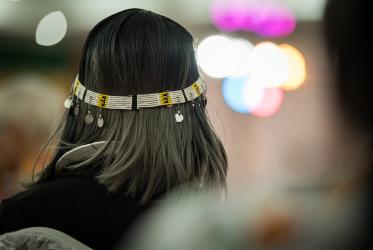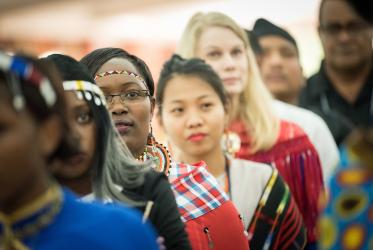Many voices have joined the chorus demanding respect for indigenous peoples’ rights and eco-justice in connection with Standing Rock, a location at the heart of the struggle against the proposed path of the Dakota Access Pipeline (DAPL) in North Dakota, USA.
World Council of Churches (WCC) president for North America Bishop Mark MacDonald praises the recent decision to reroute the pipeline. “It is good news, Gospel news, to hear of the decision to deny the necessary permits that would allow the Dakota Access Pipeline to cross into land vital to the Standing Rock Tribe,” he says.
MacDonald, who is national indigenous bishop of the Anglican Church of Canada, is one among many religious leaders to have joined the protests onsite at Standing Rock, seeing and experiencing firsthand the struggles of local indigenous communities.
“It is particularly good that the recent decision recognizes the indigenous rights of the Standing Rock people,” MacDonald says. “I am grateful to God and grateful for the many prayers offered towards this decision.”
Athena Peralta, WCC programme executive for Economic Justice and Ecological Justice, also expresses joy at the recent decision. ”This is wonderful news,” Peralta says. ”Standing Rock has featured prominently in our faith-based work at the United Nations Climate Change Conference, or COP 22, in Marrakech,” she adds. ”Among other things, faith leaders and many church-based groups joined a prayer of solidarity with Standing Rock.”
The decision to reroute the pipeline follows months of protests by people from tribal nations, faith leaders, environmental advocates and indigenous rights defenders. The oil pipeline, connecting production fields in North Dakota to refineries in Illinois, was intended to run alongside the Standing Rock Sioux Reservation and traverse the Missouri River.
Eco-justice at stake for Standing Rock people in USA (WCC press release of 7 November 2016)
Standing Rock: the pain of the past and the challenges of the future (WCC Pilgrimage blog of 14 November 2016)







